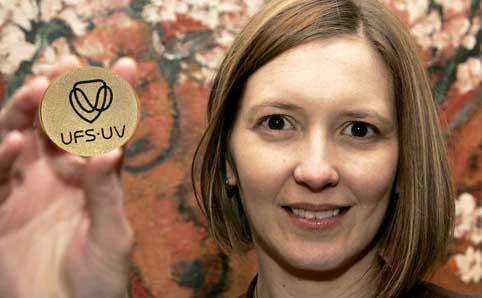Latest News Archive
Please select Category, Year, and then Month to display items
10 March 2022
|
Story Anthony Mthembu
|
Photo Unsplash
 The No Student Hungry team gearing up to start distributing food parcels to the selected students.
The No Student Hungry team gearing up to start distributing food parcels to the selected students.
The UFS is one of the many institutions of higher learning where food insecurity is an active issue. However, the
No Student Hungry Programme is one of the initiatives launched at the university to assist in fighting food insecurity at the institution.
The purpose of the programme
Since its inception in 2011, the initiative has assisted many students in acquiring a healthy meal. Additionally, the Food Environment Office also hands out food packages, so that students can continue to achieve academically. “We are trying to develop a healthy environment for students and make it easier for them to have a nice and healthy meal,” stated Annelize Visagie, who heads the Food Environment Office at the UFS. The Food Environment programme is spread out on all three campuses, each with its own facilitators. Furthermore, the programme mainly caters for students who are not funded by the National Student Financial Aid Scheme (NSFAS) but who are excelling academically. The abovementioned students apply for assistance online, and a list is then drawn up of students who receive assistance for the year.
Alternative solutions to keep the initiative running
On the Bloemfontein Campus, the No Student Hungry Programme will be catering for 200 students in the 2022 academic year, assisting them with a daily nutritious meal. Additional food parcels are also handed out to provide further assistance. “We give food parcels to the students on the list every Tuesday and Thursday at the Thakaneng Bridge,” Visagie highlighted. However, she argues that catering for the student population through this programme can be a challenge, as the demand for assistance is growing rapidly and the ability to assist is limited. The programme relies on partnerships and sponsors to assist the student body. In fact, the coordinators of the programme currently have a memorandum of understanding with Tiger Brands according to which they deliver around 100 food parcels for distribution.
In addition, the coordinators have put in place alternative measures to ensure that they can provide more food to students. “The
Kovsie Act Office, in partnership with the
Department of Sustainable Food Systems and Development, has started a food garden where healthy and nutritious produce are grown, in order to add value to the distribution,” she indicated. Although the programme can only assist to a point, students who are in desperate need of assistance are never turned away. In fact, the
Social Support Unit at Thakaneng Bridge usually assists students with food vouchers for a maximum of four days.
A commitment to teaching healthy eating habits
The programme is not only committed to curbing food insecurity, but also to ensuring that students have a healthy and balanced diet. As such, a booklet is being issued by the
Department of Nutrition and Dietetics in collaboration with the Department of Sustainable Food Systems and Development, which contains ways in which students can make a healthy meal using some of the ingredients offered in the food parcels.
“We want to teach students how to eat healthy in the cheapest way, because they don’t have a lot of money to buy expensive food products,” Visagie argued.
Computer Science lecturer receives Vice-Chancellor’s Award for teaching excellence
2011-11-11
 |
|
Dr. Liezel Nel from our Department of Computer Science.
Annually, many lecturers receive awards and recognition for their contribution to the UFS’s plans to accomplish outstanding academic performance.
Photo: Johan Roux
|
This year, the UFS presented its fourth awards function for outstanding learning and teaching.
At the awards function this past week, lecturers were rewarded for their outstanding teaching inputs at the UFS.
Dr Liezel Nel from our Department of Computer Science and Informatics was awarded the Vice-Chancellor’s award for her outstanding contribution to teaching and learning at the UFS.
The award, together with other awards presented to lecturers for outstanding teaching and learning, was instituted to encourage innovative teaching methods in departments in order to achieve outstanding academic results.
The Vice-Chancellor’s award is awarded to the lecturer who not only displays good leadership, but has also published research during the preceding year, with excellent knowledge and teaching skills in his/her discipline.
Dr Nel said she had realised over the past years that educators increasingly had more teaching resources at their disposal than before, which could be utilised to improve the teaching and learning experience of students.
“Therefore, I constantly renew my study material and the way in which I present the material. Currently I use a combined method, which includes electronic presentation by means of Blackboard, personal interaction and sessions, which enable the student to take ownership of the module.”